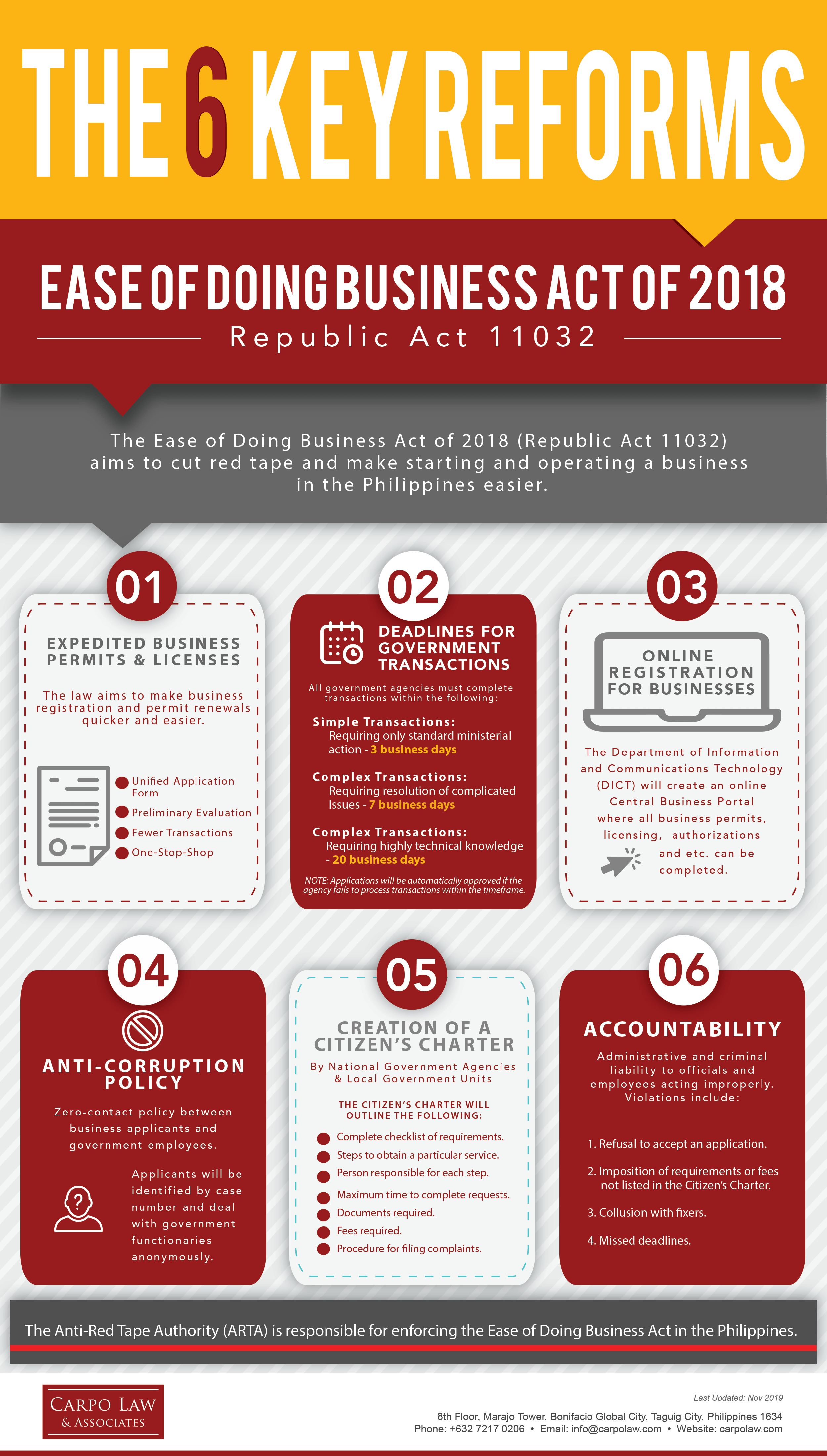
The 6 Key Reforms from the Ease of Doing Business Act in the Philippines
The Ease of Doing Business Act of 2018 (Republic Act 11032) aims to cut red tape and make starting and operating a business in the country easier.
Here are the 6 key reforms from the legislation:
Expedited Business Permits and Licenses
The law aims to make business registration and permit renewals quicker and easier.
- Unified Application Form: Consolidates all requirements and documentation into a single form.
- Preliminary Evaluation: Allows applicants to correct deficiencies before submitting application.
- Fewer Transactions: Issues all related clearances concurrently with business permit.
- One-Stop-Shop: Houses all agencies engaged in starting a business in one facility (treasury, business, licensing, etc.).
Deadlines for Government Transactions
All government agencies must complete transactions within the following:
- Simple Transactions: Requiring only standard ministerial action – 3 business days
- Complex Transactions: Requiring resolution of complicated issues – 7 business days
- Highly Technical Transactions: Requiring highly technical knowledge – 20 business days
NOTE: Applications will be automatically approved if the agency fails to process transactions within timeframe.
Online Registration for Businesses
The Department of Information and Communications Technology (DICT) will create an online Central Business Portal where all business permits, licensing, authorizations and etc. can be completed.
Anti-Corruption Policy
Zero-contact policy between business applicants and government employees. Applicants will be identified by case number and deal with government functionaries anonymously.
Creation of a Citizen’s Charter
National Goverment Agencies (NGAs) and Local Goverment Units (LGUs) will create a Citizen’s Charter.
The Citizen’s Charter will outline the following:
- Complete checklist of requirements for each application or request
- Steps to obtain a particular service
- Person responsible for each step
- Maximum time to complete a request
- Documents required
- Fees required
- Procedure for filing complaints
Accountability
Administrative and criminal liability to officials and employees acting improperly. Violations include:
- refusal to accept an application
- imposition of requirements or fees not listed in the Citizen’s Charter
- collusion with fixers
- missed deadlines
Administrative penalties will apply to first offenses while second offenses will result in criminal liability.
The Anti-Red Tape Authority (ARTA) is responsible for enforcing the Ease of Doing Business Act in the Philippines.
